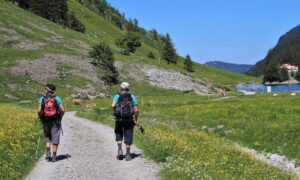Corporate travel practically stopped as the virus spread worldwide, and air travel came to a complete halt due to individuals staying at home under various levels of lockdown. Companies limited employee travel to only those journeys that were thought to be necessary and wrapped up in many levels of executive permission. Zoom and Microsoft Teams were used to conduct client meetings, pitch meetings, and board meetings, reducing business trip expenses. Additionally, it left the entire business travel ecosystem in ruins, including the hotels, airlines, and transportation providers.
Vacations become expensive
Corporate visitors typically stay in hotels because they like the simplicity of checking in and out, the uniformity of the rooms and amenities, the business centers, the relative anonymity, and the opportunity to stay in the middle of the city. The most exciting for them may be a corporate dinner, and they may book a cruise ship to make it more special. Employees opt to spend extended periods in holiday rentals with their families while working during the vacation period, creating new opportunities for private rentals. Hotels will likely respond by changing their menus, creating a live-in coworking environment with roomy accommodations, and enhancing wi-fi speeds.
Work and enjoyment go hand in hand
The term leisure combines business and pleasure and is still popular in the corporate travel industry. As the distinctions between business, travel, and personal life became hazier, many people decided to take a long working vacation in rural areas with their families and dogs along for the ride. Long-term rentals and leisure travel are still popular, even though workers are starting to return to their offices.
A higher number of people join in
Destination-specific corporate events will gain more traction as in-person business conferences and staff retreats become more popular. Leaders and employees are keen to take advantage of in-person contacts after spending so much time away from the workplace and dealing with coworkers digitally. The “Great Reconnection” movement, which makes such events more necessary and cheaper because routine business travel is reduced, will only be supported by people continuing to work from home full- and part-time. Even retreat planning startups are experiencing a boom due to the trend.
Safety is a priority
Safety and flexibility will always come first, even though most locations have relaxed their mask laws and other restrictions. Business travelers anticipate sterile surroundings, one-time-use amenities, little interaction, and self-check-in. In reality, the continued focus has increased the usage of private aircraft, allowing business executives to benefit from few touchpoints, widely spread seats, empty planes, and personalized services. Flexible cancellation procedures are still expected as long as the global climate is unclear.
Even busy days keep counting on sustainability
Companies also became aware of the environmental impact of their business visits due to the pandemic-driven near-total halt in corporate travel. Reducing travel helps companies to raise their green credentials without reorganizing or realigning operations and suppliers, which is becoming an increasingly important need for businesses of all sizes and types.

















